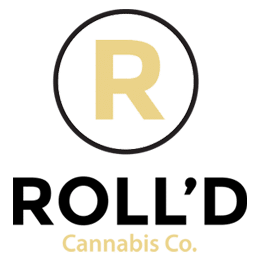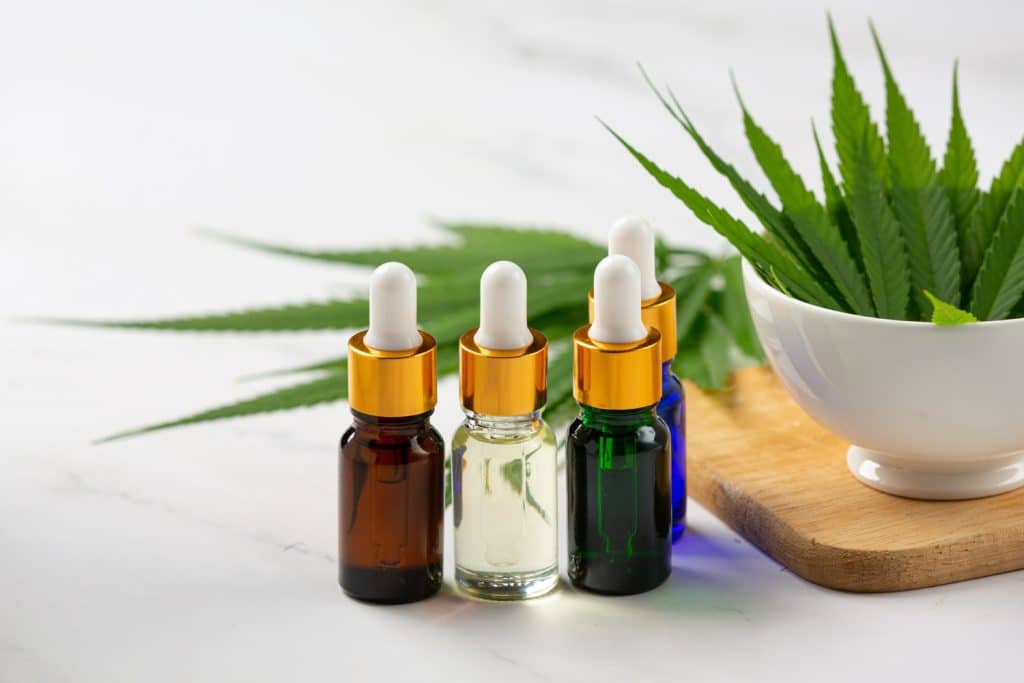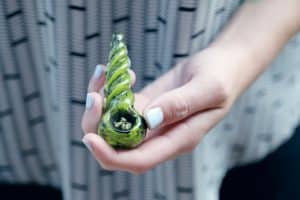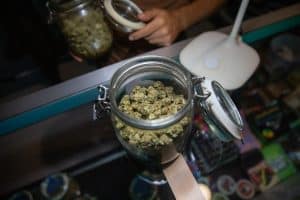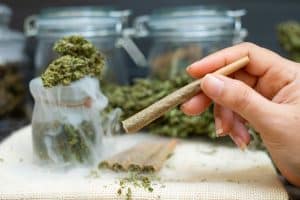The CBD market is booming, with conservative estimates stating it will reach $16 billion in the US by 2025. Do you know that the plant extract of CBD is already present in cheeseburgers, toothpicks, and breath fresheners? Cannabis’ health advantages continue to generate heated debate in medicine and wellness. However, as more medical professionals, researchers, and consumers become aware of the several unexpected advantages of CBD oil, it is only a matter of time before it is included in your list of healthy options and is subject to federal regulation.
What Is CBD?
CBD is a cannabinoid that is found in the cannabis plant. Over a hundred distinct cannabinoids have been extracted from hemp plants, and this is only one of them. However, unlike the complete cannabis plant, CBD isolation does not get you high. Cannabidiol (CBD) oil extracted from the flowers and buds of the hemp plant is gaining popularity as a therapy and potential preventative tool for various medical illnesses in states where medical marijuana use is legal. CBD oil is more powerful and natural than traditional NSAIDs (NSAIDs). Marijuana’s therapeutic potential has been employed by many cultures since 2900 BC when the Chinese first used it.
Won’t CBD Get Me High?
No. Cannabidiol, or CBD, contains no intoxicating substances found in marijuana. To comprehend why CBD does not cause drunkenness, it is necessary to review the fundamentals concerning your brain, mainly your brain receptors. The brain’s receptor is like switches on a light switchboard for the neurological system. They can activate or deactivate specific biological processes.
The cannabinoid 1 receptor (CB1) in the brain is mainly responsible for the divergent effects of THC and CBD. THC causes intoxication by stimulating CB1 receptors to a lesser extent. Conversely, CBD does not directly engage the CB1 receptor. As a result, CBD cannot produce the intoxicating effects typically associated with marijuana use.
What are The Health Benefits of CBD?
Several studies have found that cannabidiol (CBD) oil is helpful for people with anxiety, which makes sense given the endocannabinoid system’s involvement in regulating mood. In a 2018 study conducted in Brazil, 57 male participants were given either oral CBD or a placebo 90 minutes before taking a speech evaluation. Anxiety was significantly reduced at a 300mg dose, while those who received the placebo, a 150 mg dose, or a 600mg dose reported no impact or a minimal one.
Although there is a shortage of human studies on the effects of CBD on depression, a recent meta-analysis found that CBD possesses anti-stress qualities that may aid in alleviating depression brought on by stress.
Is CBD Worth Trying for Pain Management?
When it comes to relieving pain, the United States currently has no CBD-based drugs licensed for use. The sole FDA-approved CBD therapy is Epidiolex, intended to treat extremely uncommon forms of epilepsy (FDA).
Meanwhile, CBD’s use to treat specific illnesses has been legalized in several nations. The United Kingdom and Canada both gave their blessing to use it to treat MS and cancer pain, respectively. CBD for arthritis pain relief has shown promise in preliminary studies for treating various medical illnesses, from arthritis and fibromyalgia to cancer and multiple sclerosis. CBD may not be effective in treating all types of pain, but it can be helpful when combined with THC or conventional Western medical approaches.
Interestingly, a recent Forbes Health poll of 2,000 American adults by OnePoll found that 60% of CBD product users do so for its possible pain-relieving properties.
Can CBD Help with Anxiety?
The exact mechanism through which CBD alleviates nervousness is as yet unknown. According to some studies, it may operate by increasing or decreasing serotonin levels in the brain. Serotonin is a neurotransmitter that aids in regulating your:
- Mood
- Sleep
- Digestion
- Behavior
Elevating serotonin levels has been linked to effective anxiety treatment. Some studies have found similarities between the effects of CBD and those of antidepressants and anti-anxiety drugs, which both act by controlling serotonin levels in the brain.
Types of CBD
Many people use lotions, salves, ointments, and other CBD topicals to alleviate chronic pain and various skin ailments. Some of the possible adverse effects of CBD that do reach the bloodstream, such as diarrhea and lethargy, may be avoided with topical forms of CBD, such as lotions or creams, says Dr. Chen. Dr. Chen explains that topical CBD products help relieve skin disorders but that CBD’s effects are maximized when it enters circulation. Therefore patients with conditions other than skin inflammation or discomfort should consider using a non-topical product.
What qualities should I search for when buying CBD products?
- CBD Content
The entire amount of CBD and the percentage contained in the product should always be clearly labeled on the bottle. The concentration percentage helps judge the potency of an oil or paste. You can use the total content to calculate the cost per mg and compare prices across a wide range of items. If you want to know how much CBD is in the product, look at the percentage and milligrams listed on the label.
- Certified organic and free from toxins
A valid certification should back up the product’s organic claims. It is not organic, and once it receives the proper certification. Finding a reliable producer who uses certified organic growing practices, from planting seeds to extracting and bottling cannabidiol. This guarantees that there are no harmful chemicals or metals in your oil. Some manufacturers offer heavy metals testing even if their product isn’t certified organic.
- Additional lab charts
You should ask about heavy metal and pesticide testing results. If a specific contaminant is found, it can be determined if the amount present is safe for human consumption. Check the status column to make sure “pass” shows.
- Tried And Tested
Finally, you should read verified customer feedback. We have tried every CBD oil, capsule, balm, and e-liquid you will find here for the Ageless before sending them to our loved ones for comment.
- Where You Buy It
You may purchase high-quality CBD products in several places online and off. There are a lot of places to get oils, topicals, and edibles online. In states where medical marijuana is legal, visiting a dispensary to get expert advice is a great idea.
You can also get recommendations for a CBD product that will work best for you from the knowledgeable staff at a compounding pharmacy. Moreover, your doctor might have some suggestions.
Is CBD legal?
Where you live and whether or not the CBD you’re using comes from hemp or marijuana will play roles in determining the legality of your CBD. Hemp was made entirely legitimate by the 2018 Farm Bill. Although marijuana remains a Schedule I drug at the federal level, this is not the case for all states. Marijuana use has been decriminalized or even made legal in some states. Others have proposed laws targeting CBD specifically.
Conclusion
There are many different CBD products on the market, so you’ve learned enough from this guide to choose one that suits your needs. If unsure, try taking a few drops of CBD oil with a 5% concentration beneath your tongue. This is a primer on CBD in the context of nutritional supplements. You can experiment with other items or new applications when you know what works for you.
